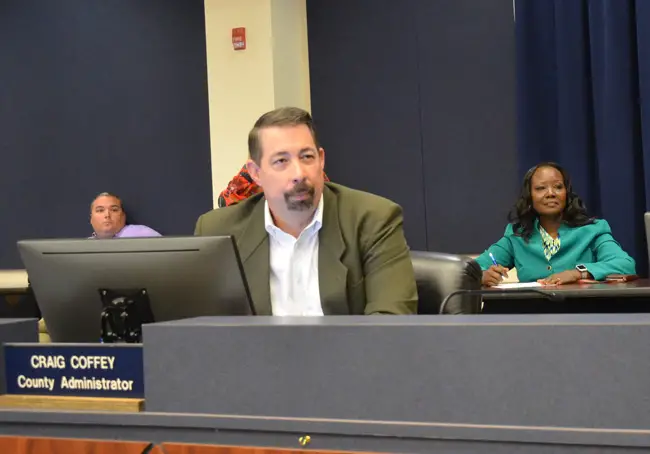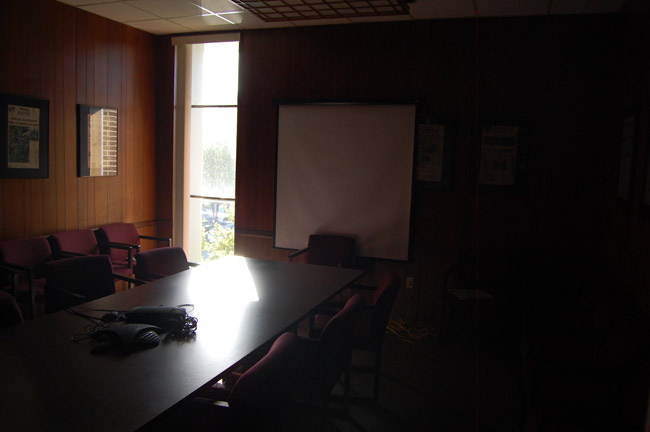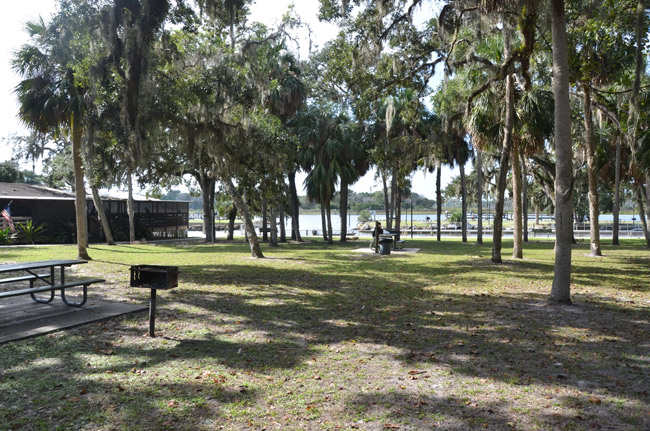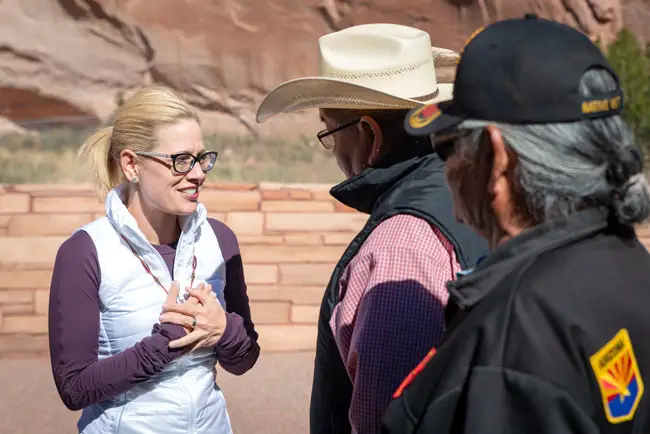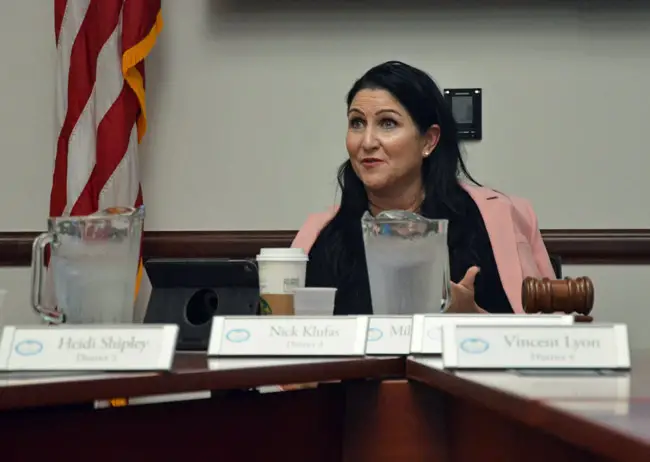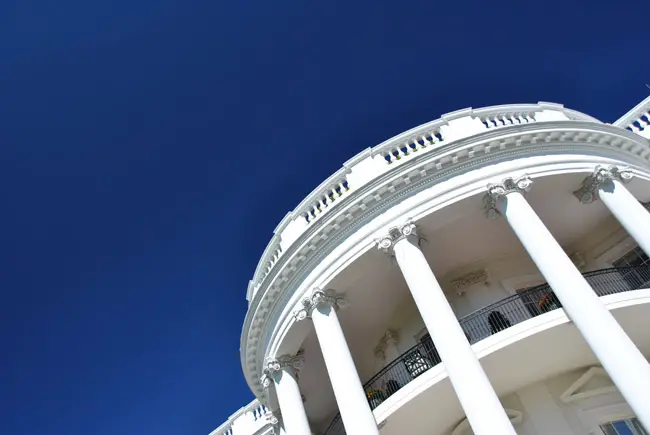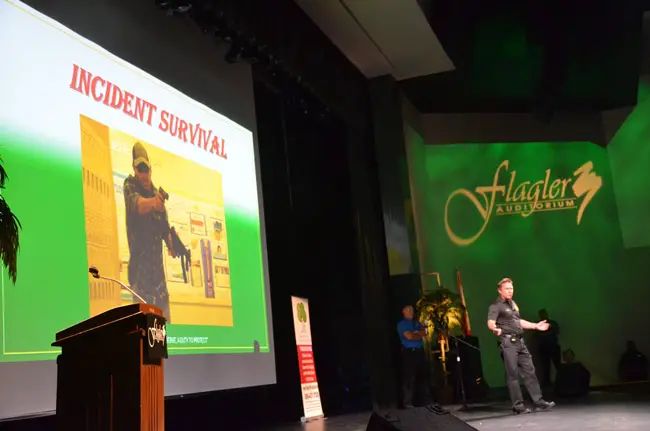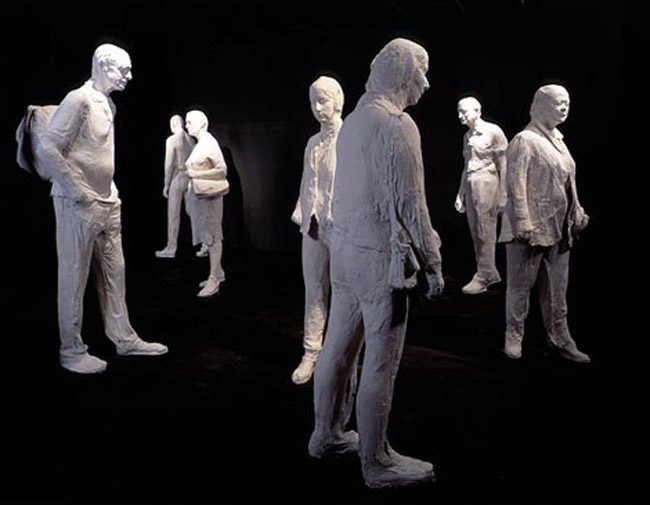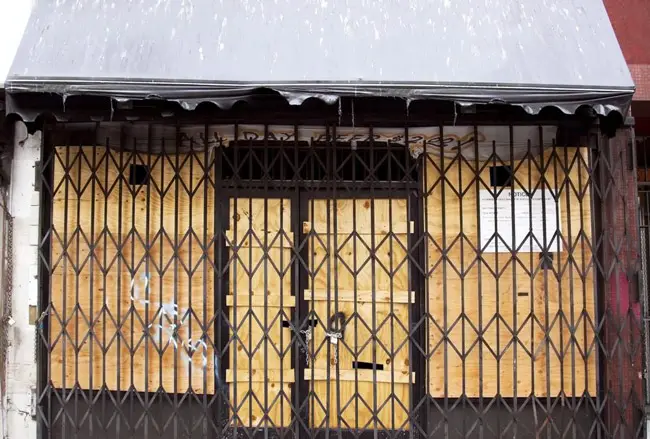Trump is using the ban purely to provoke the left, throw red meat to his base, and distract us all from the real issues in our nation, like the government shutdown.
Commentary
MLK’s Dream Of Economic Justice Deferred By Increasing Inequalities
King foreshadowed that if we maintain our exploitative economic and political systems, then we’d get not only racial apartheid, but economic apartheid as well.
Sheriff’s Sick Building: How To Hire A Savior
To break out of its leadership lethargy on the future of the Sheriff’s Operations Center, Flagler County government should find an obsessively independent project manager untainted by local politics or current administrations.
Democrats Are Afraid Of Alexandria Ocasio-Cortez Too. That’s A Good Thing.
Democratic Rep. Alexandria Ocasio-Cortez is upsetting fellow Democrats over her support for progressive primary challenges against centrist Democrats. But it’s a sound idea for the party of alleged change.
Democratic Leaders Fail Their First Test on Climate
Youth activists who occupied the offices of Democratic leaders to demand a special congressional committee to plan for a Green New Deal were appeased and brushed off.
Flagler Firefighters’ Union Members Vote For Firing Their Boss, Administrator Craig Coffey
The firefighters’ union’s vote was expected but significant in that its membership’s contract is dependent on negotiations with Coffey’s management team, and vulnerable to retaliation.
Let Craig Coffey Resign. With Severance.
Craig Coffey’s loss of credibility has been painful. It doesn’t need to be cruel. Rather than a public flogging on Jan. 14, he should be allowed to resign with a measure of dignity–and severance.
Before Barbecue: How Flagler County Saved Bing’s From Development
Bing’s Landing before the current controversy over Captain’s BBQ’s proposed expansion could have been sold off to developers. It wasn’t, thanks to one woman’s vision. Her daughter tells the story.
Democrats’ Arafat Complex
Early possibilities for the 2020 election–Joe Biden, Elizabeth Warren, Bernie Sanders, Hillary Clinton–suggest Democrats aren’t learning lessons but clinging to habits of self-destruction.
Understanding the Rise of France’s Yellow Jackets
In a larger sense the Yellow Vests movement reflects longstanding neglect or exploitation of rural communities. Not only in France but in the US and much of Western Europe.
Flagler’s Beach ‘Renourishment’ Is Exorbitant Futility
Whether it’s the Corps of Engineers’ plan for 2.6 miles of Flagler Beach sands or Flagler County’s ongoing dune-rebuilding over 12 miles, there’s no money to sustain either, yet officials are mortgaging the county’s future on a blank check.
The Migrant Caravan’s Lessons from South of the Border
In Tijuana, some Mexicans have embraced the Trump line on Central American migrants. But others have welcomed them with open arms.
Save the News-Journal: How Wall Street Is Plundering Newspaper Chains Like GateHouse
Executives at GateHouse, which owns the News-Journal, demanded a $27 million cut from theirf papers’ operating expense to help pay for the hedge fund’s CEO’s $54 million pay package.
Barbecuing Bing’s
With even Captain’s BBQ owners willing to get “back to the drawing board,” there’s plenty of room for Flagler government to fix what remains a dirty deal that hurts all sides.
Nancy Pelosi’s Democrats Are Out Of Touch With Progressive Insurgents
Positions the timeworn Democratic leadership staked out are being overrun—outmatched by the cumulative power of dynamic social movements that have generated electoral clout.
In War Over Words, Republicans Continue Easily To Defeat Democrats
The Republican Party lost ground in the Congressional and state elections earlier this month, but the GOP continues to triumph in the all-important contests over words, argues Ralph Nader.
Nature Is Dying. Florida Is Sinking. Are Republicans Up to the Challenge?
A string of recent hurricanes reminded Floridians they don’t have to look across the country to see climate change in action. But the GOP continues to be in climate-change denial mode.
Democrats Won Big. But the Question Is Whether They Can Now Be Bold.
The reforms Democrats in Congress have championed have often been overly complicated and cautious — and deeply compromised by a fear of annoying deep-pocketed donors.
Muslims Surf the Blue Wave
The election of two Muslim women to Congress is a repudiation of Islamophobic domestic and foreign policies and of hostility to migrants and refugees from a number of countries.
The Death of WNZF’s Ron Charles, Friend and Colleague, at 56
Ron ‘Charles’ Gitschier, 56, built Flagler County’s first radio station WNZF as its chief engineer for the past 10 years, was its news director and a man of rare integrity and humility.
Being Trans in America Was Already Scary. Now It’s Terrifying.
On any given afternoon, the author is regularly and publicly catcalled, mocked, laughed at, and treated as an object of social disgust. Donald Trump is about to deny her right to exist.
Save Our Home: We Have 12 Years
There’s an urgent message of hope amid the latest climate report’s dire warning: We’ve got a little bit of time to save the only home planet we’ve got. And it’s going to take all of us to do it.
Restoring Felons’ Right to Vote:
Why I’m Voting Yes on Amendment 4
In 46 other states, the right is restored either immediately or on completion of probation. Florida stands out for harshness, accounting for a quarter of America’s disenfranchised.
Flagler Representative On Federal Juvenile Justice Panel Describes Efforts Decimated By Trump
Cheryl Massaro, director of the Flagler County Youth Center, describes how the Trump administration disbanded and stopped the work of the Federal Advisory Committee for Juvenile Justice she was appointed to two years ago.
Journalists Say Trump’s Caravan Claims Are ‘Evidence-Free.’ It’s a Lot Worse Than That.
Journalists have a duty to give context, not just to report on whether a sound bite contains truth on a sliding scale. Otherwise, it’s journalistic malpractice.
Trump’s Responsibility
Trump can’t have it both ways. He can’t revel in his powers of denigration and incitement then take cover behind a bogus sense of outrage and his usual deflections when the incitement and denigration arm fuses and kill people.
Trump’s Bone Saw Problem
Trump can’t be lavishing praise on tyrants and think it’s not another way of saying, as he did of white supremacists last year, that “some of them are fine people.” He can’t be equating journalists with scum and not have blood on his hands.
Even As Voter Registration Soars, Bogus Fraud Claims and Real Voter Suppression Live On
Experts are predicting record-high midterm voter turnout. But millions of U.S. citizens are being systematically inhibited — either blatantly or covertly — from casting votes this November.
Elizabeth Warren’s Identity Problem
Trump’s racism is obvious. He’s using the name Pocahontas as a racial slur. But Elizabeth Warren stepped into a controversial issue without much sensitivity for the people who are most affected by it.
A Better Way To Fight Homelessness: Decriminalize It
Law enforcement is often used as a first response to address homelessness. Many communities criminalize it instead of connecting the homeless with essential services, assuming they’re available.
News-Journal Redemption: Krys Fluker Is Paper’s New Editorial Page Editor
Krys Fluker has just been named editorial page editor of the Daytona Beach News-Journal. FlaglerLive Editor Pierre Tristam cheers the appointment of his old colleague.
Palm Coast’s Shocking Electric Tax Scheme
Out of nowhere the Palm Coast City Council is about to ram through a large tax increase on residents and businesses with hardly any discussion, no hearings, no public education. No wonder we have tea parties.
The GOP’s Kavanaugh Playbook Was Textbook Abusive Behavior
Kavanaugh defenders said a lot about the presumption of innocence. But in truth they were following a much more menacing playbook, common to many abusers called out for their behavior.
Saint Kavanaugh
Whether Kavanaugh was confirmed or not is irrelevant: whoever’s next might be less personally sleazy, more temperamentally amoebic, but judicially? Same shill, different name.
The Cruelty of the GOP’s Kavanaugh Charade
A few of us posted about sexual assault in general or about our own past assaults on our Facebook pages. Then the private messages began. The details are painful to talk about.
Why Women Don’t Report Sexual Assault
That urge to discredit accusers of sexual assault like Christine Blasey Ford is exactly why it takes so long for some to come forward in the first place.
Nobody In the White House Is Part of ‘the Resistance’
Administration insiders admit Trump’s dangerous, but they’ll stick with him as long as he cuts billionaires’ taxes, deregulates corporations, and feeds the military-industrial complex.
Stand Your Ground Vigilantes
Instead of allowing the police to perform their jobs, some gunslingers hiding behind stand-your-ground laws take the responsibility of pursuing criminals upon themselves.
When McCain’s Odes to Honor and Civility Ring False
The “straight talk” people praise McCain for is actually what most of them can’t stand about politicians: They say noble words but cast ignoble votes.
Without Fear Or Favor. Or Whining.
Defending the press against Donald Trump’s “enemy of the people” attacks may have its place, but reporters’ best bet is to shut up and do their job well: it’s the most eloquent response.
If Your Boss Makes Millions, It’s Not Because of the ‘Market’
On average, America’s CEOs make 312 times what their workers take home — and that has nothing to do with supply and demand. Simply put, markets don’t set executive pay. Board rooms do.
Party Split or Not, Republicans Using George Soros to Smear Other Republicans Is Offensive
The GOP primary that has degraded into absurd name-calling pits tea-party-backed Scott Sturgill against conservative Mike Miller in the Edgewood, Orlando, and Winter Park area.
I Grew Up In the Segregated South. For Me, Supreme Court Rulings Are Personal.
The author shares her grave concern for what Brett Kavanaugh’s influence could mean for communities of color, women, the LGBTQ community, and others who’ve fought to advance civil rights.
If Ireland Can Get Out of Fossil Fuels, “Tree-City” Palm Coast Can Too
Almost 900 cities, universities, and governments have divested over $6 trillion from the fossil fuel industry by requiring pension funds and other such investments to be green. Why not yours?
Flagler’s Elections Supervisor Urges Confidence in Voting System: Your Ballot Won’t Be Hacked
Flagler County Elections Supervisor Kaiti Lenhart outlines the latest measures to make the county’s election system hack-proof and challenges voters to turn out and cast a ballot.
Schools Are Safer Than Your Home
We’re making fortresses of the safest places in America, out of fear that one of those 120,000 schools might at some point be the target of a shooting.
America’s Pre-Existing Condition
Florida is among the states suing to end the requirement that people with pre-existing conditions be covered by insurers. It’s the latest cynical attempt to end Obamacare.
Amazon’s Deceptive Bargain With Local Government Purchasing–at Local Business’ Expense
Amazon’s bid to dominate local government purchasing has gone under the radar. IKt’s appealing on the surface, but could make it harder for agencies to buy from local vendors.
Protest and the Double-Edged Sword of ‘Civility’
Uncivil action may be a necessary strategy, just as civil disobedience, bearing witness, and making politicians uncomfortable were critical to the civil rights movement.
Restricting Food Stamps Use at Farmers’ Markets Is One More Way To Hurt the Poor
The government just canceled its contract with the company that makes the card readers necessary to read food stamps cards at farmers markets.







